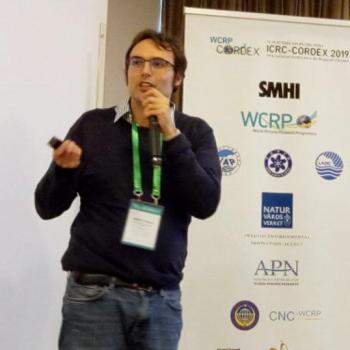Mediterranean Marine Ecosystem Responses to Two Different Levels of Global Warming: A Study Using Eddy Resolving Projections Under RCP4.5 and RCP8.5 Emission Scenarios

The School of Earth and Atmospheric Sciences Presents Dr. Marco Reale, National Institute of Oceanography and Applied Geophysics-OGS
Mediterranean Marine Ecosystem Responses to Two Different Levels of Global Warming: A Study Using Eddy Resolving Projections Under RCP4.5 and RCP8.5 Emission Scenarios
The impacts of climate change on the main marine ecosystem properties of the Mediterranean Sea in the middle and at the end of 21st century are assessed by using eddy resolving projections of the physical and biogeochemical state of the basin under the Representative Concentration Pathways (RCP) 4.5 and 8.5. Under both scenarios, the numerical simulations project changes in the dissolved nutrient content of the euphotic and intermediate layers of the basin, as well for net primary production, phytoplankton respiration and carbon stock. Moreover, a uniform surface and subsurface reduction in the oxygen concentration occurs as a response to the warming of the water column and the increase in ecosystem respiration.
The acidification of the upper water column is driven by the projected increase of dissolved inorganic carbon content, which depends on the CO2 absorption from the atmosphere and ecosystem respiration. At the basin scale, the magnitude of projected changes is stronger in the RCP8.5 (worst-case) scenario with major impacts in the Eastern Mediterranean due to the limited influence of the exchanges at the Strait of Gibraltar. On the other hand, projections under RCP4.5 emission scenario show in the second half of the 21st century a tendency for several variables to recover the levels observed at the beginning of the century.
On a more local scale, the use of an eddy resolving resolution allowed us to determine statistically significant differences in the response of the coastal systems with respect to open ocean. Finally, the result related to the RCP4.5 scenario supports the idea that the reduction of CO2 emission could be, indeed, effective and could contribute to the foundation of ocean sustainability science and policies.





